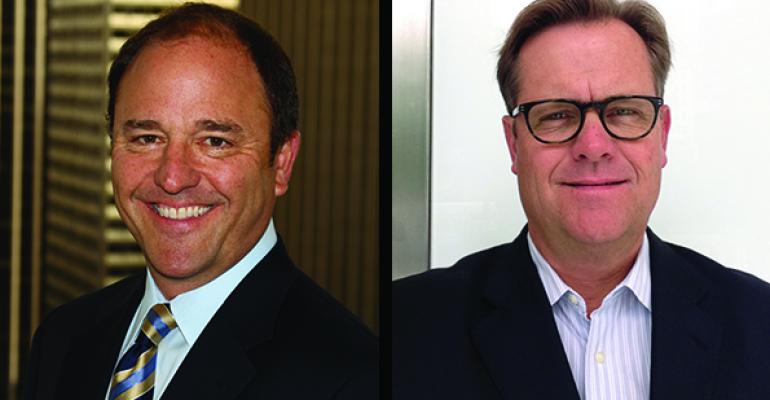Dennis Clark
Managing Director
Shelton Capital
San Francisco
The Advice: Be patient and thoughtful. Listen carefully to clients and colleagues before responding.
Background: “As a young sales professional transitioning into management, I did not appreciate the value of simply allowing clients or colleagues to express themselves fully and completely. Learning that lesson has paid huge dividends in both my professional success and my personal life.”
 Why It Matters: “By the time I was 25, I thought I knew all the questions and the objections. So why waste time? I interrupted to respond to the question or objection I thought I heard. I regarded anticipating the questions and objections as being clever. Looking back with wiser eyes, I am sure I would find myself annoying. What I know now is that sometimes the richest information comes after a pause or simple nod of understanding.”
Why It Matters: “By the time I was 25, I thought I knew all the questions and the objections. So why waste time? I interrupted to respond to the question or objection I thought I heard. I regarded anticipating the questions and objections as being clever. Looking back with wiser eyes, I am sure I would find myself annoying. What I know now is that sometimes the richest information comes after a pause or simple nod of understanding.”
Pertinent Anecdote: “I was representing an established financial services company to a wealthy Latin American investor who was considering opening an account with my firm. The investor asked, ‘What about safety and security?’ I had heard this question a thousand times from investors and had provided the same excellent answer a thousand times. So I detailed our strong balance sheet, lack of proprietary trading, excess SIPC coverage, etc. The investor looked at me quizzically. His question had to do with another kind of security. What if we sent account statements to his home and they were intercepted by someone who would reveal the family’s wealth to the very active kidnap and ransom cartel business that was thriving at the time? He was concerned about the safety and security of his family. I felt foolish, dumb and insensitive.”
The Takeaway: “It’s all well and good to be a go-getter and take the world by the horns. But nothing about being over-caffeinated, ambitious and motivated is at odds with being patient, thoughtful and listening well.”
Dennis Clark is the managing director of Shelton Capital in San Francisco. He joined the firm in January 2011 and is responsible for developing sales, marketing and strategy initiatives. Prior to that, he was a senior executive at Charles Schwab, and also spent 10 years as president of Advisor Partners. Dennis earned a Bachelor of Science degree in finance from the University of Oregon.
Philip Hildebrandt
CEO
Segall Bryant & Hamill
Chicago
The Advice: Taking the comfortable path is rarely the optimal path. Take a risk.
Background: “In retrospect, the theme that has been most central to my success is the willingness to fail. The most successful people I know don’t let fear of failure paralyze them. If you are only willing to make safe decisions, you will not make great decisions. If I was mentoring my younger self, the willingness to embrace risk is the single factor that I would preach.”
 Why It Matters: “It’s important to understand that most people, including me, have a fear of failure. No one wants to look bad. Few people like to go to the edge. But that’s often where the truly great decisions require us to occupy. The fear of failure is so limiting. It manifests itself in all kinds of ways. People are not willing to ask the important questions or raise that critical objection.”
Why It Matters: “It’s important to understand that most people, including me, have a fear of failure. No one wants to look bad. Few people like to go to the edge. But that’s often where the truly great decisions require us to occupy. The fear of failure is so limiting. It manifests itself in all kinds of ways. People are not willing to ask the important questions or raise that critical objection.”
Pertinent Anecdote: “Early in my career, I had an opportunity to work in London. I grew up in the Midwest and ended up choosing Chicago because, frankly, Chicago looked easier and more comfortable. In hindsight, given how global finance works, I’m sure I would have benefitted from two years in London. Instead I chose the safe decision.”
The Takeaway: “Part of building a thriving business is sometimes taking controversial positions and proving, through results, that your position was correct. I was willing to do that, and that led to my success.”
Hildebrandt is CEO of Segall Bryant & Hamill, an investment management firm in Chicago. Prior to joining SBH, he was director of marketing for CSI Asset Management, an investment subsidiary of Prudential Investment Corporation. He also served with Prudential in their merchant banking area, arranging private debt and equity placements for Prudential’s general account. He has a Bachelor of Science degree in finance from the University of Minnesota and a Master of Business Administration degree in finance from the Kellogg School of Management at Northwestern University. He has also earned the CFA designation.





